FAQs on Recreational Programmes for Residents
Activities in care homes are essential to the wellbeing of residents and should be carefully crafted to stimulate the mind, body and soul. When choosing a care home, it is important to consider what recreational programmes are offered by the home.
This guide aims to provide you with helpful information about what care homes activities programmes should look like and the benefits for care home residents.
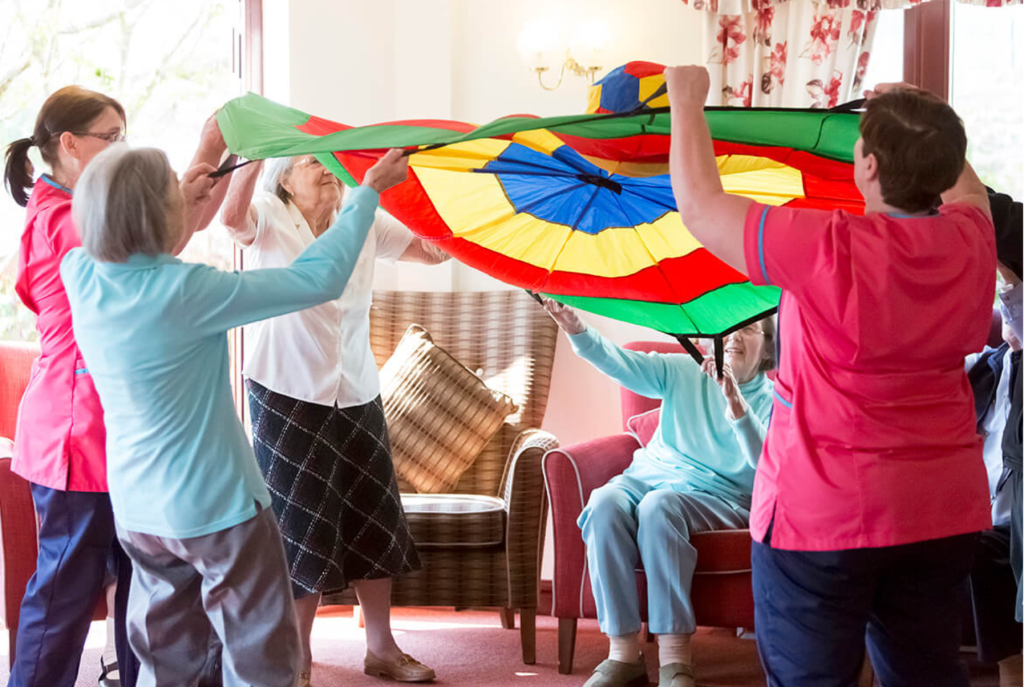
Frequently asked questions
What activities are available in care homes?
Care homes offer a variety of activities, which are inspired by residents’ capabilities and interests. These can include:
- Physical activities: Armchair exercises, yoga and walking clubs.
- Cognitive activities: Puzzles, quizzes and reading clubs.
- Creative activities: Arts and crafts, music therapy and poetry club.
- Social activities: Pet therapy, community events, trips out and parties
How are activities chosen and structured?
Care homes often run surveys or meetings to get residents’ feedback on the activities they enjoy or would like to partake in. Often through one-to-one activities, teams learn about residents’ past hobbies and interests and may find creative ways for residents to enjoy them again.
Based on residents’ feedback and finding the right balance of activities, the team will create programmes and share weekly planners so residents can plan in advance what they would like to participate in. Involving residents in the planning and selection of activities can help them to feel more engaged and have a higher sense of autonomy.
What rights do residents have in a care home regarding participation?
Although team members may encourage residents to join in activities for their wellbeing, care homes are committed to respecting residents’ choices and ensuring that nobody feels obliged to participate in an activity.
If a resident is restricted to a bed, what activities are available to them?
Care homes run regular one-to-ones sessions and are trained to adapt activities to residents’ needs. Activities may include light upper-body exercises, puzzles or reminiscence sessions.
Will my loved one be able to continue their hobbies and interests?
Care home teams are committed to supporting residents to continue doing the things they love. Whether that be adapting previously loved pastimes to suit a resident’s needs or incorporating their interests into group and one-to-one activities.
What activities are available for those living with dementia?
When a care home provides dementia care, the Activities team will be trained in running activities that support those living with dementia to live a fulfilling life. Activities may include sensory sessions, pet therapy and one-to-one activities.
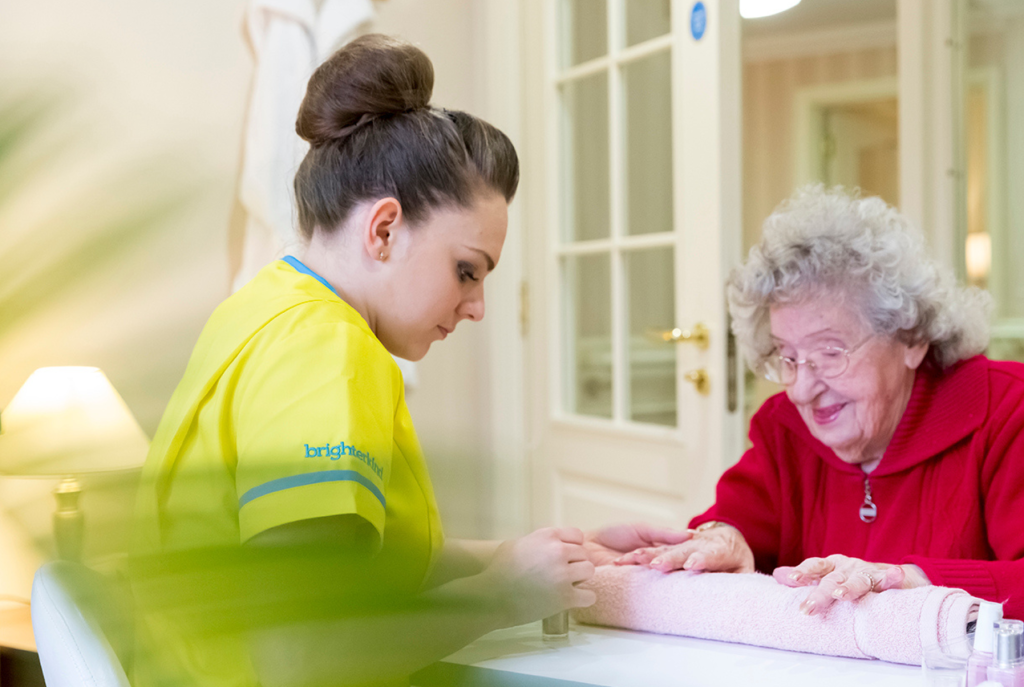
Benefits of activities for residents’ health and wellbeing in care homes
Physical health
Physical activities, such as armchair exercises, gardening clubs and day trips are a great way for residents to keep fit whilst having fun. By engaging in regular physical activities, it helps residents to maintain flexibility, mobility and overall good physical health. Maintaining balance, flexibility and mobility also helps retain day-to-day independence and reduces the likelihood of falls.
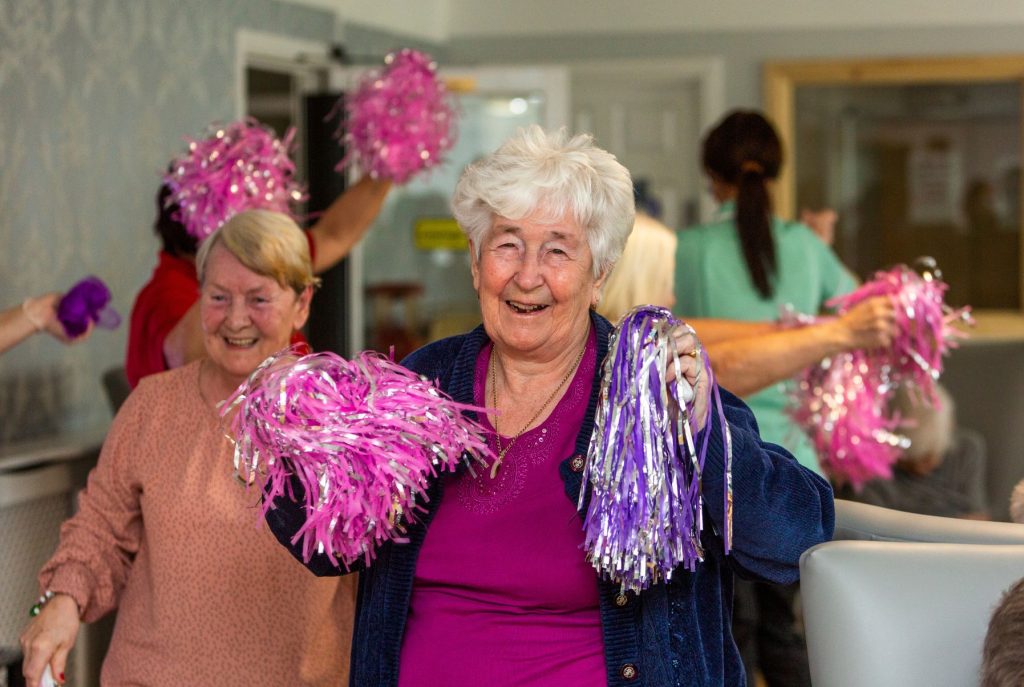
Mental stimulation
Activities which are designed to trigger cognitive stimulation, such as puzzles, quizzes and language lessons help to improve memory, problem-solving and overall cognitive function.
A study investigated the benefits of older adults learning new skills and increasingly complex tasks over a three-month period. The results revealed that participants who took digital photography and quilting lessons experienced improved memory function compared to those who did not engage in cognitively stimulating activities.

Emotional wellbeing
Group activities and social interactions can significantly improve residents’ mood and helps to create a sense of community and belonging. Residents often make friends or have a buddy with who they chat and socialise, this helps to reduce feelings of loneliness.
Studies found regular social interactions can contribute to prolonged lifespans and help to prevent or delay up to 40% of dementia types.
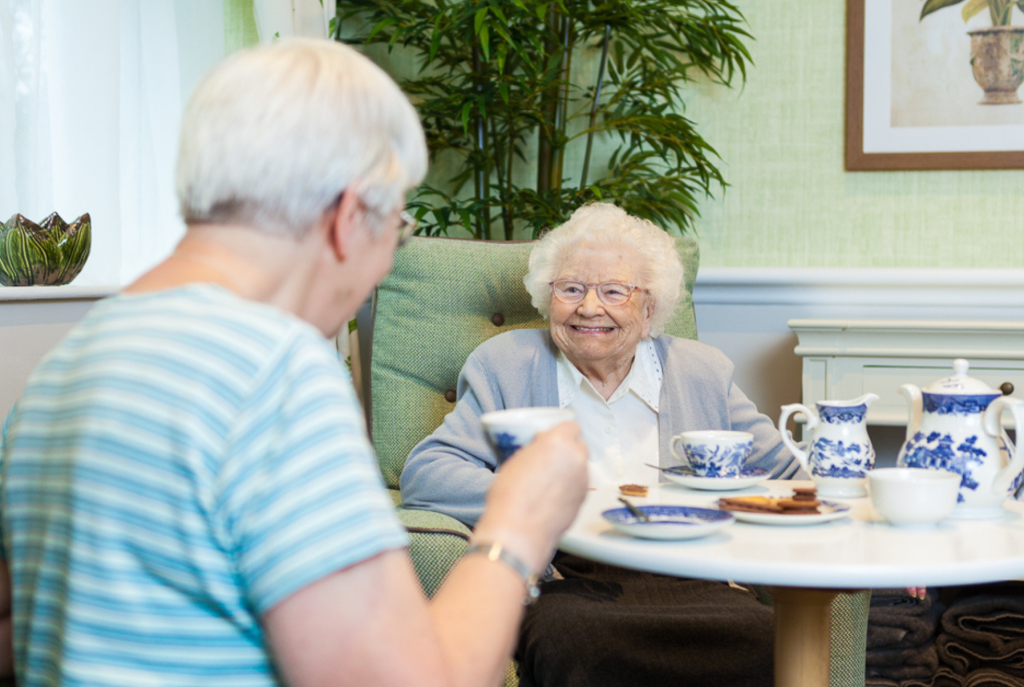
Enhanced quality of life
Activities for care homes residents contribute to higher quality of life as it helps residents remain active, engaged and happy. This holistic approach to care supports residents’ physical, mental and emotional needs.
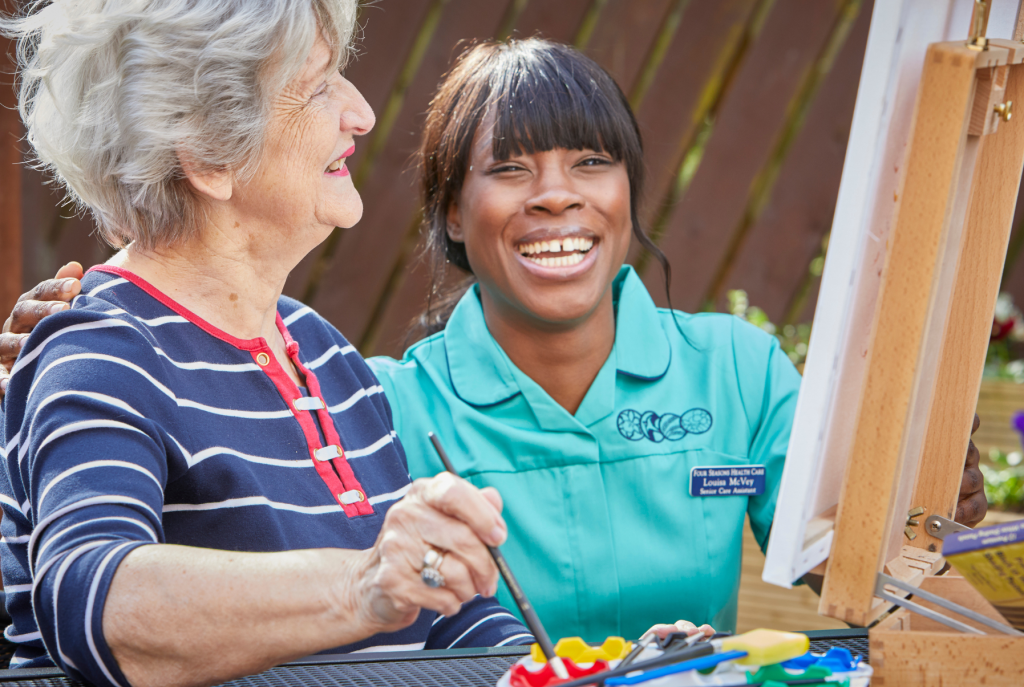
Why choose a Four Seasons or brighterkind care home?
Activities for elderly residents in care homes play a crucial role in their wellbeing. Activities should be varied to help improve residents’ physical, mental and emotional wellbeing.
In our Four Seasons and brighterkind care homes, our teams are passionate about not only providing excellent person-centred care, but also providing engaging activities inspired by residents’ interests and capabilities, as well as special occasions. We call them Magic Moments.
Our ever-changing activities programmes are designed to improve residents’ wellbeing and help them to live a fulfilling life. Our vibrant and varied activities are supported by our Magic Moments Portal, which is full of on demand content, including virtual tours, language lessons, photography tutorials and more! We continually enhance our activities programme and our partnerships help us to accommodate a wide range of interests and provide ongoing training to our Activities teams.
Four Seasons homes offer a ‘Welcome to the Week’ to introduce key organised activities and trips out. This is helpful for families wishing to join in with key activities and for residents to plan their week. It also offers the opportunity to discuss activities residents would like to try or start in the coming week.
In our Four Seasons and brighterkind care homes, instant feedback on activities is captured by the Activities team. Our daily data capture of activity means that the team know who has enjoyed and engaged with activities and who may not. Helping them to tailor the activities programme to the likes and dislikes of the individuals living in the home.
If you would like to experience the magic in our homes, please find your local care home and arrange a visit.
Sources
Brownie, S., & Nancarrow, S. (2013). Effects of person-centered care on residents and staff in aged-care facilities: a systematic review. Clinical Interventions in Aging, 8, 1-10.
Livingston, Huntley, J., Sommerlad, A., Ames, D., Ballard, C., Banerjee, S., Brayne, C., Burns, A., Cohen-Mansfield, J., Cooper, C., Costafreda, S. G., Dias, A., Fox, N., Gitlin, L. N., Howard, R., Kales, H. C., Kivimäki, M., Larson, E. B., Ogunniyi, A., … Mukadam, N. (2020). Dementia prevention, intervention, and care: 2020 report of the Lancet Commission. The Lancet (British Edition), 396(10248), 413–446. https://doi.org/10.1016/S0140-6736(20)30367-6
Murthy, V. H. (2020). Together, Loneliness, Health & What Happens When We Find Connection. Profile Books.
Pahor, M., Guralnik, J. M., Ambrosius, W. T., Blair, S., Bonds, D. E., Church, T. S., & LIFE Study Investigators. (2014). Effect of structured physical activity on prevention of major mobility disability in older adults: The LIFE study randomized clinical trial. JAMA, 311(23), 2387-2396.
Park, D.C., Lodi-Smith, J., Drew, L., Haber, S., Hebrank, A., Bischof, G.N. and Aamodt, W., 2014. The impact of sustained engagement on cognitive function in older adults: the synapse project.
 Advice Hub
Advice Hub Find a home
Find a home Enquire now
Enquire now